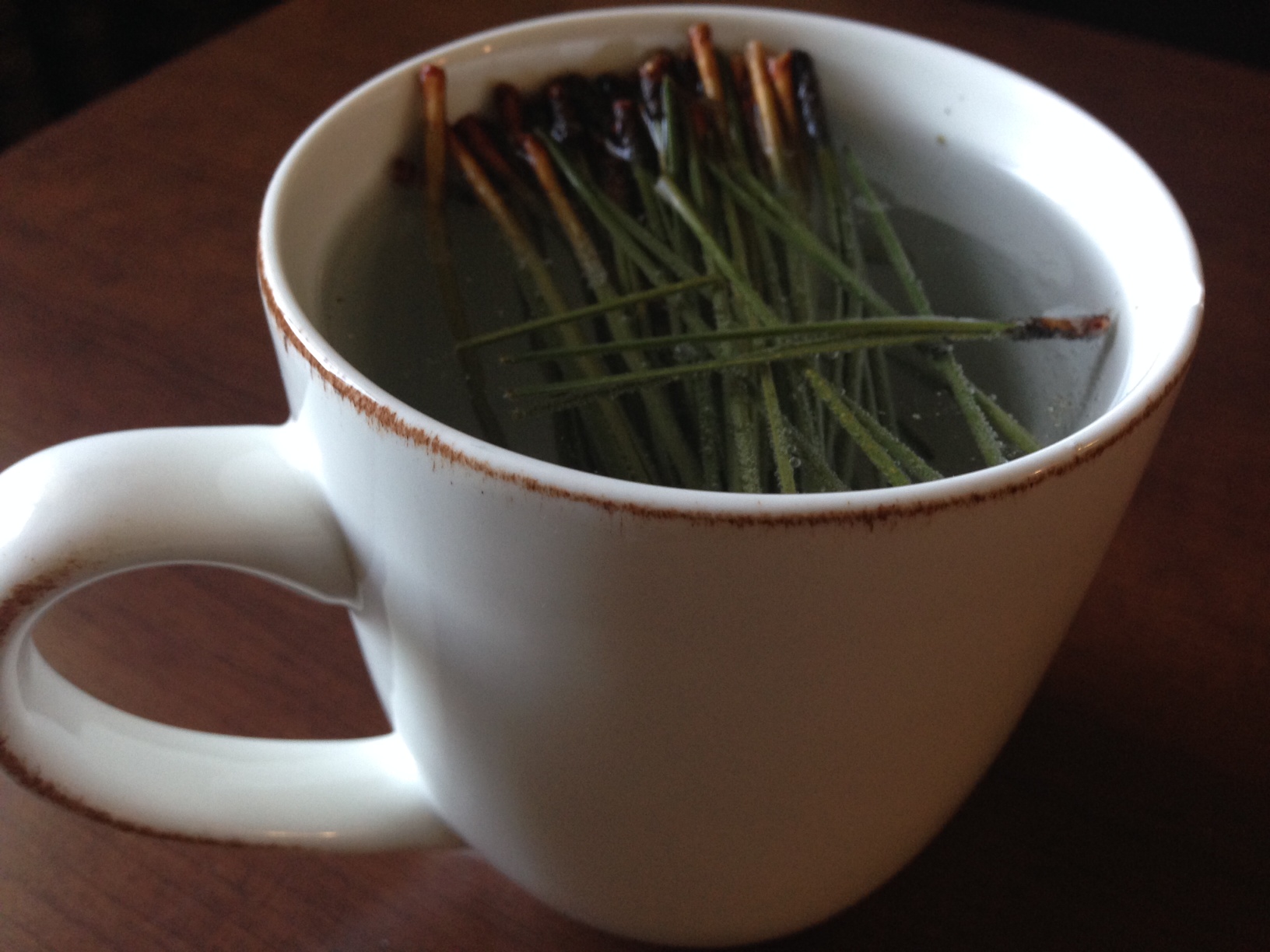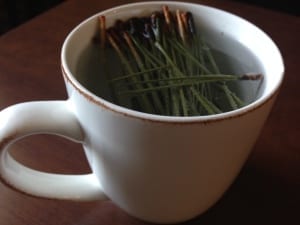Have you ever thought about drinking pine needles? Probably not. People have been making pine needle tea from real pine trees for ages. Pine needles are rich in vitamin C, vitamin K, vitamin A, and antioxidant beta-carotene, thiamin, and riboflavin.
The tea has a long history of relieving arthritis pain, muscle aches, and soreness. Centuries ago, people placed pine needles in mattresses to aid in rheumatic ailments. It’s also been known for its acute remedial qualities for bronchitis, especially effective in thick mucus-producing congestion and respiratory infections. Ingesting a slow warm tea also reduces painful throat irritation.
Pine needle tea has been a traditional wild food that includes benefits due to its aromatic oils and vitamin C content. The history of drinking pine needle tea dates back to when some European settlers came to the continent and were suffering from scurvy due to a lack of vitamin C. The Native Americans introduced them to pine needle tea. Today, Native Americans still drink pine needle tea to treat coughs and colds. They believe that one cup brings five times as much vitamin C as you would find in one cup of orange juice. I personally drink it as well. I enjoy the taste and the added nutrients the tea provides.
Gathering the needles for the tea is relatively simple. Just make sure you get them off the tree while they’re alive and not when they have fallen to the ground. But, exercise caution: avoid using Ponderosa, Norfolk Island, and Yew needles among over 100 different pine varieties, as brewing them can prove toxic. Also, common sense rules dictate that you should collect your needles from trees in a clean source. Make sure they haven’t been exposed to exhaust, or chemicals, or are close to dump sites. Pregnant women or those in childbearing years should avoid pine needle tea as some sources have linked it to miscarriage.
The more fresh and alive they are, the better. To brew pine needle tea, start by putting about 1/3 of a cup of needles into a cup of hot water. Cover the mixture and steep for about 15-20 minutes. Then sweeten with honey taste if you desire. Even though pine needles are naturally sweet, they often aren’t sweet enough for our finicky tea pallets.
Overall benefits include increased strength and energy, and many believe it can reverse or slow the aging process. Even though it might not do all of that for you, it is very beneficial in getting over a cold faster. For maximum effect, the recommendation is to drink several cups a day, making it fresh each time.
This would be a great tea to drink during this season. Not just because the pine tree is associated with Christmas, but because these holiday months tend to be the most stressful and germ-contagious months of the year.
If pine trees are scarce, consider buying pine needle tea in powdered form from health stores or online.
Enjoy!




